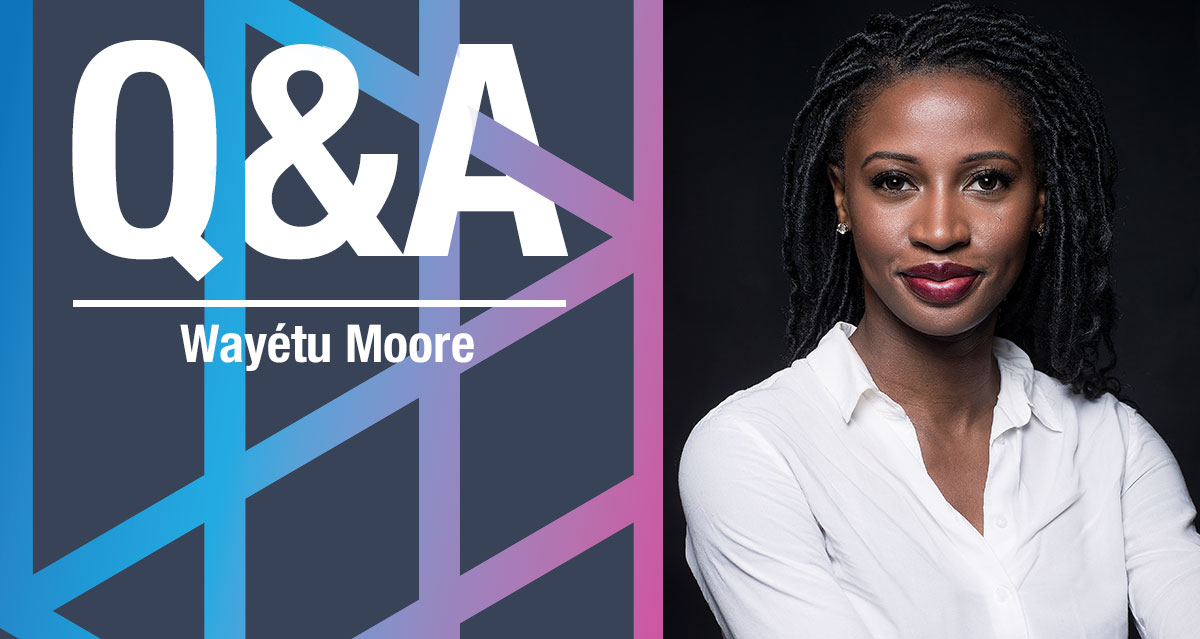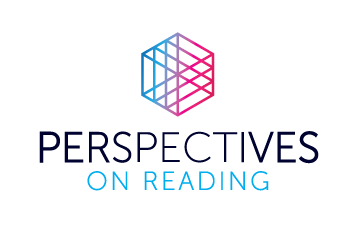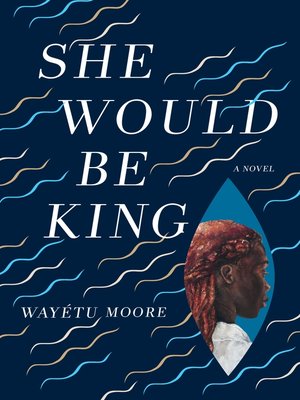She Would Be King author Wayétu Moore on the magic of storytelling (Q&A)

By Jill Grunenwald, Staff Writer | March 2019
Before the written word, stories were passed down through the oral tradition of storytelling. For Liberian-American author Wayétu Moore, the stories of West Africa were her introduction to imaginative worlds and speculative fiction. Her debut novel, She Would Be King, reimagines the formation of Liberia through a blend of historical fiction and magical realism and was selected as a title for actress Sarah Jessica Parker’s American Library Association Book Club Central picks. Perspectives on Reading was delighted to explore with Moore storytelling’s influence on her as both a reader and a writer.
PoR: You grew up surrounded by West African storytelling, which often features magical realism, something you adopted in your own book, She Would Be King. What impact did that oral tradition have on your experiences with reading as you grew up?
Wayétu Moore: When people ask why I chose to write in magical realism, I explain that my introduction to storytelling was through what the West calls magical realism and fantasy. But, speculative fiction in storytelling is a form that is most organic to me. It was rare in the West African storytelling tradition, and in my case, the Vai tradition, to hear a story that didn’t include someone casting a spell or someone flying or shape shifting or displaying some other supernatural ability as they went about their lives. So, this genre feels the most organic. It shaped my early experience of reading, because I was always looking for those elements in stories. I wanted and needed to see magic between the lines.
PoR: With written pages, the story and word choices are fixed, but storytelling allows for flexibility. Every time a story is told, there may be small changes. The overall plot and characters remain the same, but there may be nuances to the language used. What did this teach you about the crafting of stories, either written or told aloud?
Wayétu Moore: Storytelling empowers the storyteller. There is power in the flexibility you mention, for the individual telling the story. I think as an adult, this makes me more confident to share ideas for books I haven’t yet written with readers and other writers. I believe that no one will be able to tell the story that I can, and that is so liberating.
PoR: She Would Be King includes folklore, including some that were original. Were there any challenges in creating a folktale to be read while, at the same time, mimicking stories that you had originally listened to?
Wayétu Moore: I had so much fun contextualizing the single folktale I included at the beginning of the book. It was so short, and more like an aphorism warning people to be kind to cats. Even as a child, I was curious about the cat’s personality and the old woman’s name and backstory, but those things didn’t exist. It was awesome to create those things, and in creating them, I was more fueled and inspired to create folktales of my own.
PoR: Your organization One Moore Book is a nonprofit that produces books featuring children from underrepresented cultures and encourages reading among children from countries with low literacy rates. We talk a lot about the need for diverse books in America, but can you talk a little bit about what the landscape of diverse reads looks like in African countries and why it was so important to you to found One Moore Book?
Wayétu Moore: I think the landscape is changing. Social movements around the world are challenging social consciousness, and thus, changing various sectors. In Liberia, for instance, a policy was created in recent years that mandated the use of culturally relevant material in all alternative education classes. Of course, there is the issue of implementation, but I think that even having this policy is a huge step forward. The world is changing, and the dialogue around equality and social justice is a wildfire. I am so inspired to live in this time, and to be a part of the conversation.
PoR: In many ways, both nationally and internationally, it seems that low literacy rates are often tied to race, with whites having better access to libraries and schools that support and encourage reading. Are there opportunities for individuals to address the disparity in access to literacy education?
Wayétu Moore: I would say to middle-class and working-class families (in the U.S.) that one path to equalization is to avoid the need to move out of neighborhoods that become more racially diverse. Tax dollars are important in the U.S. education sector, and I think avoiding the instinct to silo, and allowing our communities to truly reflect the racial diversity of the country, is profound and a glaring opportunity to address the disparity in access to quality education, and therefore literacy education.
PoR: What countries are currently represented by titles from One Moore Book and which countries do you hope to feature next?
Wayétu Moore: Right now, we have books that represent the lives of children in Liberia, Haiti, Guinea and Brazil, and we are currently collaborating with a Ghanaian-based publisher to distribute some of their titles through our press.
PoR: Along with your nonprofit, you also have One Moore Bookstore, which is the first bookstore in Monrovia to provide books purely for reading pleasure. When children do read, it’s usually for school and rarely do they see characters that look like them. How much do you think low literacy rates are related to not having access to books that represent their community?
Wayétu Moore: I think it’s very related. The most important support that a child can be given to ensure the successful management of their future is literacy. And it does, at least in my experience, assist with their engagement and investment in the literature they’re presented if there is some cultural relevancy.
PoR: Around the world, bookstores are closing, even in Western countries where a large portion of the community reads on a regular basis. How is One Moore Bookstore doing these days?
Wayétu Moore: We function primarily as a community center, with those in the community coming into the space to read and write. We also offer classes at our facility. So, while the books there are for sale, the essence of the store is one that welcomes individuals to come and stay.
PoR: Since beginning One Moore Book and opening One Moore Bookstore, have you seen any changes in literacy rates in Liberia and surrounding countries?
Wayétu Moore: I think the literacy rate is improving, but it surely isn’t because of the independent efforts of this nonprofit, although we are a small part of the conversation. There are dynamic local organizations that have opened in the last few years that are championing literacy in communities around Liberia. I am happy to be a small part of what these groups are doing. I can’t wait to see what’s next.
Read a sample of She would be king:
This interview has been condensed for length and lightly edited for clarity.



